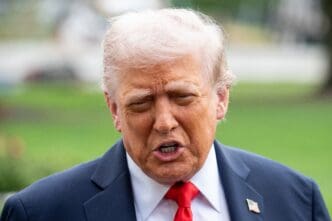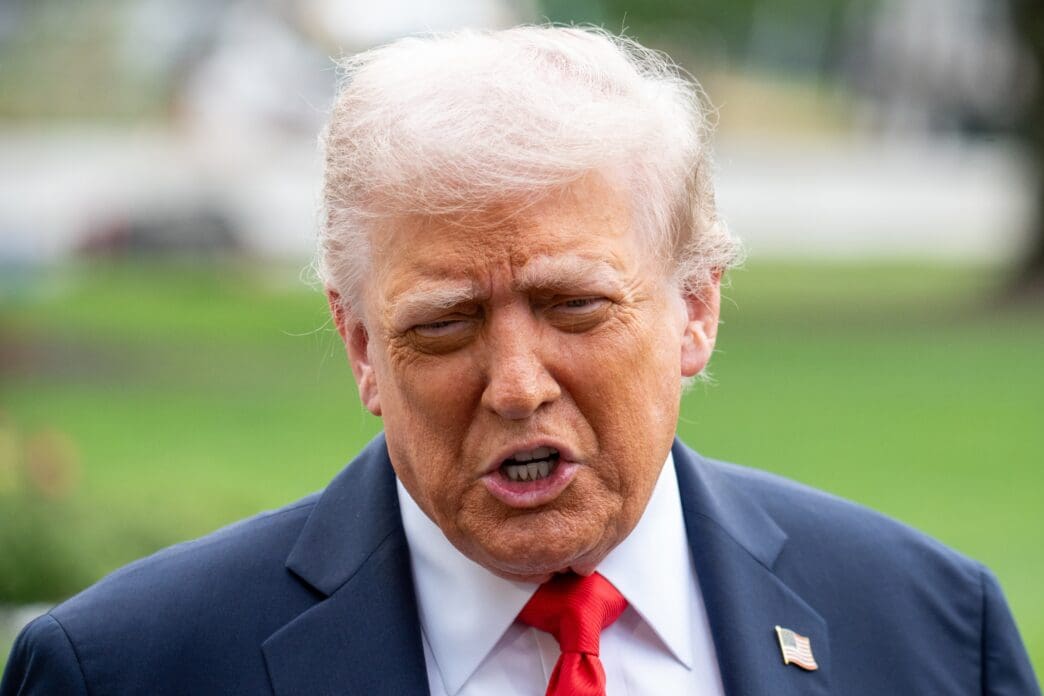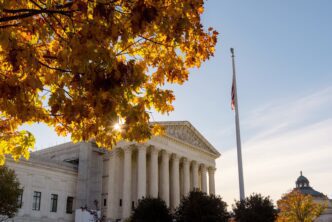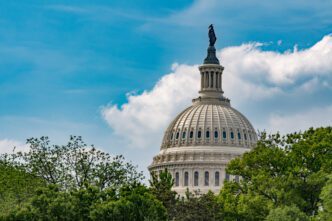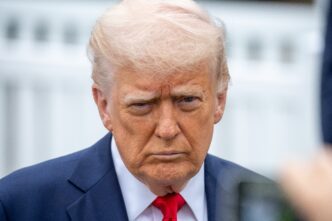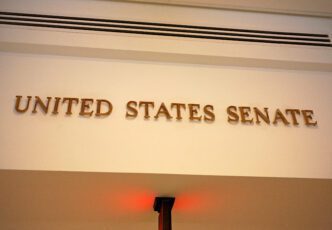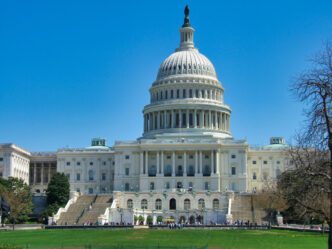Executive Summary
The Story So Far
Why This Matters
Who Thinks What?
President Donald Trump’s initial expectation of a swift political victory from the ongoing government shutdown is facing increasing scrutiny, as the stalemate now threatens to extend into a second week. Concerns are quietly emerging within Trump’s inner circle that the political ramifications may be more complex than anticipated, with Democratic lawmakers remaining unified and public opinion split on accountability for the impasse.
The high-profile funding dispute has emboldened Democrats, who have defied Republican predictions of a quick capitulation. Early polling data indicates that Americans are nearly as likely to blame President Trump and the Republican Party as they are congressional Democrats for the shutdown. As the White House prepares to implement widespread federal employee layoffs as a pressure tactic, the broader public’s reaction remains uncertain.
“I’m supposed to say this is killing the Democrats,” one Trump adviser commented on the shutdown. “But I don’t think it helps either side, to be honest with you.” This sentiment reflects a surprising political complexity, as the conventional wisdom often dictates that the party initiating a shutdown bears the overwhelming majority of the blame. So far, the stalemate has not generated significant public outrage, and financial markets appear largely unfazed by the day-to-day political drama in Washington.
GOP Leaders Remain Confident Amid Mixed Public Reaction
Despite early White House polling suggesting Democrats would be primarily held responsible, a Washington Post poll found 47% of respondents blaming Trump and the GOP, compared to 30% blaming Democrats. This mixed public reaction has seemingly alleviated pressure on Democrats to quickly seek a resolution, prompting some to broaden their messaging beyond their initial health care demands.
Republican leaders, however, maintain confidence in their strategy, doubling down on accusations that Democrats are responsible for the shutdown over health care funding for undocumented immigrants. White House press secretary Karoline Leavitt stated, “If this shutdown continues, as we’ve said, layoffs are an unfortunate consequence. It’s the Democrats who have forced the White House and the president into this position by voting to shut the government down.”
The Trump administration has yet to implement its threat of widespread cuts to the federal workforce, a prospect that has alarmed some Republican lawmakers and operatives who believe it could undermine the party’s standing. Nevertheless, there is no indication within Trump’s orbit or among congressional GOP leaders of a willingness to back down, with the expectation that Democrats will eventually concede. Budget chief Russ Vought has reportedly urged President Trump to leverage the shutdown to advance priorities such as downsizing agencies and cutting funds to projects in blue states, framing these actions as opportunities to shift blame to Democrats.
Looming Obamacare Subsidies Expiration Adds New Urgency
The unpredictable political fallout has introduced fresh urgency regarding the looming expiration of enhanced Affordable Care Act (ACA) subsidies, an issue Republicans increasingly worry could cause lasting damage to the party. Democratic lawmakers have made these subsidies a central component of their shutdown demands, warning of potential double-digit premium increases that have solidified support for their position.
While White House officials and Republican leaders have adopted a firm stance against negotiating on ACA subsidies until the funding standoff concludes, administration officials have privately explored options for extending the subsidies since before the shutdown began. Aides to Senate Majority Leader John Thune and House Speaker Mike Johnson have also acknowledged the necessity of resolving the issue to prevent steep cost increases for millions of Americans, many of whom are their own constituents.
This situation is likely to precipitate a difficult intraparty debate within the Republican Party, particularly in the House, where members may be asked to vote for the first time to uphold a provision of Obamacare. Some conservative lawmakers have already indicated opposition, while others are expected to demand divisive provisions. Conversely, a contingent of Senate Republicans has engaged in private discussions with Democrats to find a solution, with early talks focusing on a potential two-year extension of the subsidies accompanied by reforms to limit eligibility and overall cost. Senator Josh Hawley of Missouri emphasized the need for action, noting that many in his state face nearly doubled premiums.
The growing political significance of the subsidies has led White House officials to signal a willingness to begin bipartisan negotiations on a health care deal once the shutdown concludes. However, with no clear political impetus for an immediate end to the stalemate, confidence is low regarding when that might occur. “I think they were under the assumption the Democrats were going to cave quicker,” the Trump adviser noted. “But people have gotten used to these things. They’re like, oh, that’s a Washington thing. They’ll solve it, they’ll figure it out.”

